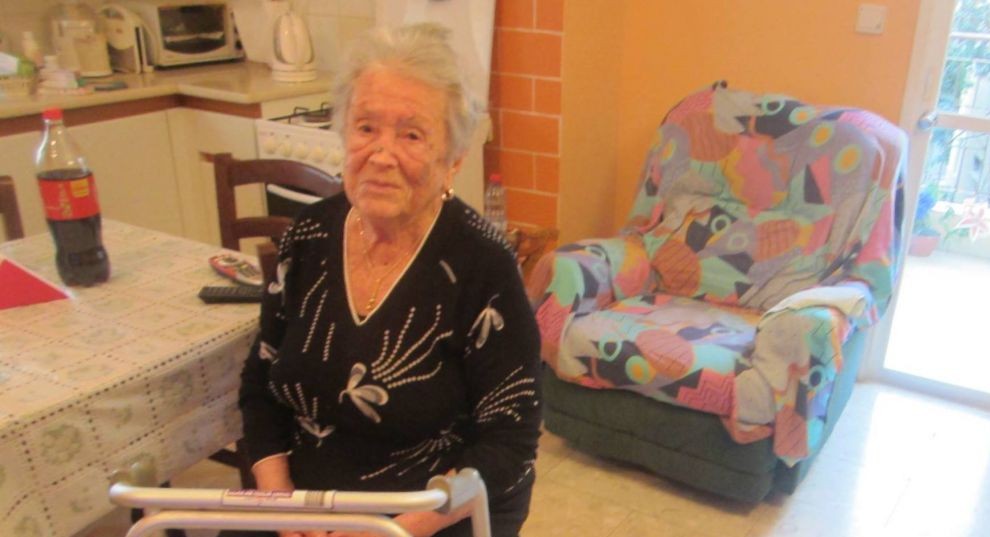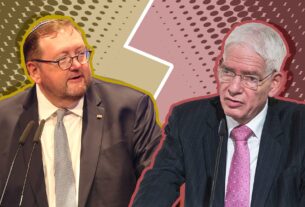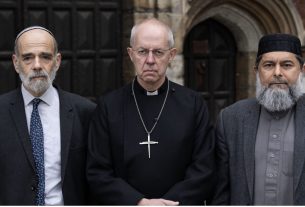(JTA) — After Russian President Vladimir Putin reunited with his Jewish high school teacher on an official visit to Israel in 2005, he bought the elderly widow an apartment in Tel Aviv.
That’s according to a widely circulated story based on an interview that the former teacher, Mina Yuditskaya-Berliner, gave to an Israeli news outlet in 2014. At the time, Putin was facing international rebuke over his invasion of Crimea, but Yuditskaya-Berliner had nothing but praise for him.
“When I got the apartment, I cried,” she said. “Putin is a very grateful and decent person.”
Newly uncovered financial records, however, reveal that the funds for the $208,000 apartment came from a bank account in Cypress belonging to Russian Jewish billionaire Roman Abramovich, according to reports published Sunday as part of a collaboration between Israeli investigative outlet Shomrim, the Washington Post and the International Consortium of Investigative Journalists.
A company controlled by Abramovich transferred $245,000 to Yuditskaya-Berliner on the same day she purchased the apartment, documents show.
The discovery of the transaction is notable because it undermines denials by both Abramovich and Putin that the two are financially linked and is likely to bolster suspicions that Abramovich’s ascent to the top of Russia’s business world indebted him to the country’s ruler.
Abramovich is currently under United Kingdom and European Union sanctions targeting Russian oligarchs, enacted in the wake of Putin’s invasion of Ukraine last February to target his wealth abroad and penalize his associates.
“The Israeli apartment story perfectly encapsulates how unwritten understandings and winks and nods lie at the heart of the Putin-era system,” Andrew Weiss, a Russia expert at the Carnegie Endowment for International Peace who previously held positions at the White House and State Department, told the Washington Post. “Tycoons like Roman Abramovich don’t need to be strong-armed into taking care of small-time stuff at Putin’s behest. They know precisely what’s expected of them and all too happily play along.”
Records of the transaction are part of a trove obtained by the nonprofit group Distributed Denial of Secrets and shared with journalists at several outlets, including Shomrim’s Uri Blau, Greg Miller with the Washington Post, and Spencer Woodman of ICIJ.
Asked to respond to questions, a spokesperson for Putin referred reporters to the Federation of Jewish Communities of Russia and said the organization would have been responsible for “any charitable work in Israel.”
Through his own spokesperson, Abramovich said he donated the funds for the apartment but not at Putin’s request. The gift was made in response to “a request received from the Jewish community,” the spokesperson said. Abramovich amassed his wealth by buying state assets on the cheap after the fall of the Soviet Union and has used his fortune, estimated at as much as $13 billion, to become a major philanthropist. He says he has donated more than half a billion dollars to Jewish causes, including to Yad Vashem, Israel’s Holocaust memorial.
Rabbi Alexander Boroda, president of the Federation of Jewish Communities of Russia, was quoted in the Jerusalem Post Sunday saying that it was he who had asked Abramovich for a donation for a new apartment after learning that Yuditskaya-Berliner was living in a fourth-floor public housing unit with no elevator and a leaky ceiling.
Putin was a student in Yuditskaya-Berliner’s German class at High School 281 in Leningrad, now St. Petersburg in the 1960s. She left for Israel in 1973 during a wave of Jewish emigration from the Soviet Union, which Yuditskaya-Berliner said was characterized at the time by “suspicion, terror and fear.” Putin went on to become a KGB officer in East Germany.
She shared the story of her reunion with Putin and credited him with buying her an apartment in an article published by Ynet in 2014 under the headline, “I was Vladmir Putin’s teacher.”
She said she had lost track of Putin for decades until seeing his face on television next to that of Russian President Boris Yeltsin in the late 1990s. Putin was in charge of Russia’s internal security agency but soon succeeded Yeltsin as president.
Ahead of an announced state visit by Putin to Israel in 2005, Yuditskaya-Berliner decided she’d like a chance to see Putin in person and reached out to the Russian consulate. She was eventually invited to an event honoring World War II veterans at the King David Hotel and seated across the table from Putin. Afterward, the Russian president invited her to have tea with him in a private room.
The two reminisced about their shared history and before the meeting ended, Putin had his former teacher write down her address. Gifts started arriving, including a commemorative watch and an autographed copy of Putin’s book. Soon someone showed up and arranged to move her into a new apartment.
Yuditskaya-Berliner died in 2017 at 96. In her will, she instructed that her apartment be given to the Russian government.




